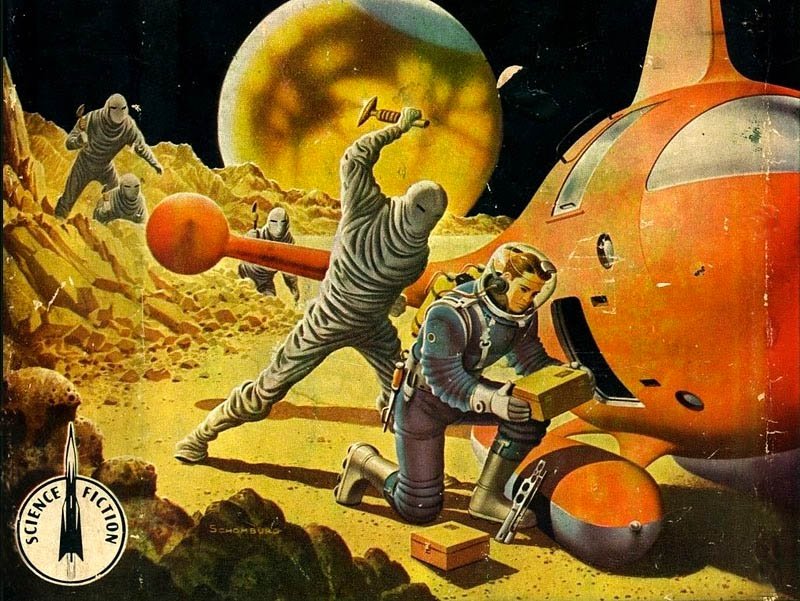Clifford D. Simak’s City is a classic science fiction from 1952. It won the International Fantasy Award and a lot of the themes in the novel are still applicable today!
“City is a series of connected stories, a series of legends, myths, and campfire stories told by Dogs about the end of human civilization, centering on the Webster family, who, among their other accomplishments, designed the ships that took Men to the stars and gave Dogs the gift of speech and robots to be their hands.”
I decided to read this novel after hearing it was comparable to Sea of Rust, though they definitely only share the “robot” aspect and nothing else.
This is a hard book to review because it requires a lot of balance. It’s both a story and not a story, it’s post-apocalyptic but not in the same sense that we’re used to, and it has some dated aspects (as to be expected).
Overall, did I like it? Yes, it was really interesting. Was it an action-packed romp? No. Was it character-driven? No. It’s interesting as a piece of reactionary art from a specific time period. It’s a thought experiment and a warning. This novel would be entirely different were it written today – and that’s fine.
That’s why I love to read classic science fiction!
From the Foreward, and the time period, it’s obvious Simak was attempting to wrestle with the changing world around him. He was worried about not just nuclear devastation (legit) but a society that he saw as slowly stultifying into uselessness. At least that was my take on the book.
The novel is set up as eight small stories that are self-contained but carry a plot showing the changes on Earth between 1991 and 12000 years in the future. The idea is that dogs and robots are all that are left on Earth after most humans have gradually left the planet to cultivate other worlds. The even bigger idea of the book is an extrapolation into why human nature is violent and whether that violence has a purpose or not. It’s not quite deep but it’s interesting based on Simak’s own discussion of the novel in the Foreward (in my 1976 version) which talks about his reaction to the nuclear bombs dropped in WWII.
The plot is not entirely compelling. It’s less about a continuous story than instances or impetuses to change certain junctures of human development. We have stories set on Earth, one set on Jupiter, and then a final story about sentient ants and parallel universes that gets a bit off track. That being said, the tone and overall conceit of the novel are very consistent and easy to unpack. The characters are very bland repetitive people – most from the same family (that’s how the story connects) – and the only one with any sort of personality is Jenkins, the robot butler that serves the family and then guards the house for 12000 years.

There is a whole side plot about mutant humans that lacks in detail and we don’t learn enough about anyone to really care for them. You don’t read this novel for a thrilling story or to cry at the human experience, but to think about concepts like human nature, whether violence is ever justified, are we still people if we leave our planet?
Overall, definitely worth checking out, but it’s very dry and very slow-paced. Be prepared if you haven’t read any classic sci-fi before!
If you enjoyed this review and would like a bit more, check out our Youtube Book Review where I go a little deeper into the themes of the novel, talk about the hilarious tech, and laugh at some dated aspects.





Leave a Reply